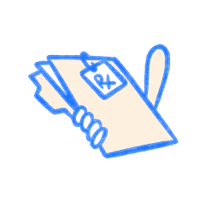What Does a Professional Development Nurse Do?
The healthcare industry is dynamic and ever-changing, yet the importance of continuous learning and professional growth cannot be overstated. This is where the professional development nurse comes in.
These nurses play a vital role in nurturing the knowledge and skills of nursing professionals at all levels, offering guidance to help them navigate their careers. However, unlike other nurses, these healthcare professionals aren’t on the floor focusing on patients. Instead, they focus on the professionals providing the care. In this blog, we’ll explore the role of a professional development nurse.
What is a Professional Development Nurse?
A professional development nurse is a specialized healthcare professional whose role is to enhance the knowledge, skills, and competencies of nursing staff within a healthcare organization. They possess a unique blend of clinical experience, teaching proficiency, and leadership acumen that allows them to excel in their role.
These nurses leverage their clinical experience and knowledge of evidence-based practice to design and deliver educational programs and initiatives tailored to the needs of nursing staff. From curriculum development to hands-on training sessions, professional development nurses employ a variety of teaching methods to engage and empower nurses at all levels of experience.
Through it all, they promote a collaborative and supportive learning environment that helps nurses navigate new challenges, expand their skill sets, and strive for excellence in patient care.
Responsibilities of a Professional Development Nurse
A professional development nurse’s responsibilities and job description can vary from one position and employer to the next, but the core roles often remain constant. These responsibilities may include:
Curriculum Development
One of the primary responsibilities of a professional development nurse is designing and developing educational programs and curricula tailored to the needs of learning staff. This entails identifying learning objectives, selecting appropriate teaching methods, and creating engaging and relevant educational materials.
Continuing Education
The healthcare world is ever-evolving, with new research and studies revealing innovative technologies, advancements, and best practices every year. Professional development nurses help nursing staff stay on top of these changes by organizing and facilitating continuing education opportunities, which may include workshops, seminars, and online courses.
Mentorship and Coaching
These nurses serve as mentors and coaches to the nursing staff they represent, providing guidance, support, and encouragement to the nursing staff at all levels of experience. They help new nurses transition into their roles, offer advice on career advancement, and assist experienced nurses in honing their skills.
Quality Improvement Initiatives
Professional development nurses also collaborate with other healthcare professionals to identify weak points or areas for improvement in nursing practice and patient care. Upon identifying these areas, they develop and implement quality improvement initiatives geared toward enhancing patient outcomes and improving the overall quality of care delivery.
Research and Evidence-based Practice
These nurses help keep nursing staff current by promoting the integration of research findings and best practices into patient care. They do this by facilitating research projects, disseminating research findings to nursing staff, and encouraging the adoption of evidence-based interventions.
Professional Licensure and Certification
Professional development nurses provide guidance and support to nursing staff in obtaining and maintaining professional licensure and certification. Whether nurses need help with the licensure process, finding study resources for certification exams, or remaining up to date on continuing education requirements, the professional development nurses are there to help.
Collaboration and Advocacy
In addition to their other roles, professional development nurses collaborate with other high-level professionals, including nursing leadership, interdisciplinary teams, and external stakeholders, to advocate for the professional development needs of nursing staff. They’re the ambassadors for nursing excellence, promoting a culture of lifelong learning and continuous improvement.
Prepare for the ANCC NPD-BC Exam With Pocket Prep
The role of a professional development nurse is multifaceted and dynamic. It encompasses a wide range of responsibilities aimed at fostering the growth and development of nursing professionals. Through their dedication, expertise, and passion for lifelong learning, professional development nurses play a pivotal role in shaping the future of nursing practice and ensuring the delivery of high-quality, evidence-based care.
If these roles sound good to you, a career as a professional development nurse might be right for you. When it comes time to prepare for your tests, whether it’s the NCLEX-RN or the ANCC NPD-BC exam, Pocket Prep is here to help you quiz your knowledge and pass your exams with flying colors.
Frequently Asked Questions
How Do You Become a Professional Development Nurse?
To take the Nursing Professional Development Certification (NPD-BC) exam, you must be an active RN with a bachelor’s degree or higher, have two years of full-time experience as an RN< complete at least 2,000 hours and 30 hours of continuing education units in the NPD specialty within the past three years. You can take the exam to become certified when you meet these prerequisites.
How Long Does it Take to Become a Professional Development Nurse?
Becoming a certified professional development nurse can take anywhere from three to six years, depending on your career path and any specific program requirements.
How Much Does a Professional Development Nurse Make?
Nursing professional development specialists make approximately $87,020, which is comparable to the average salary of registered nurses, $81,220. However, salaries can vary based on multiple factors, including your state of residence and the facility you work at.

